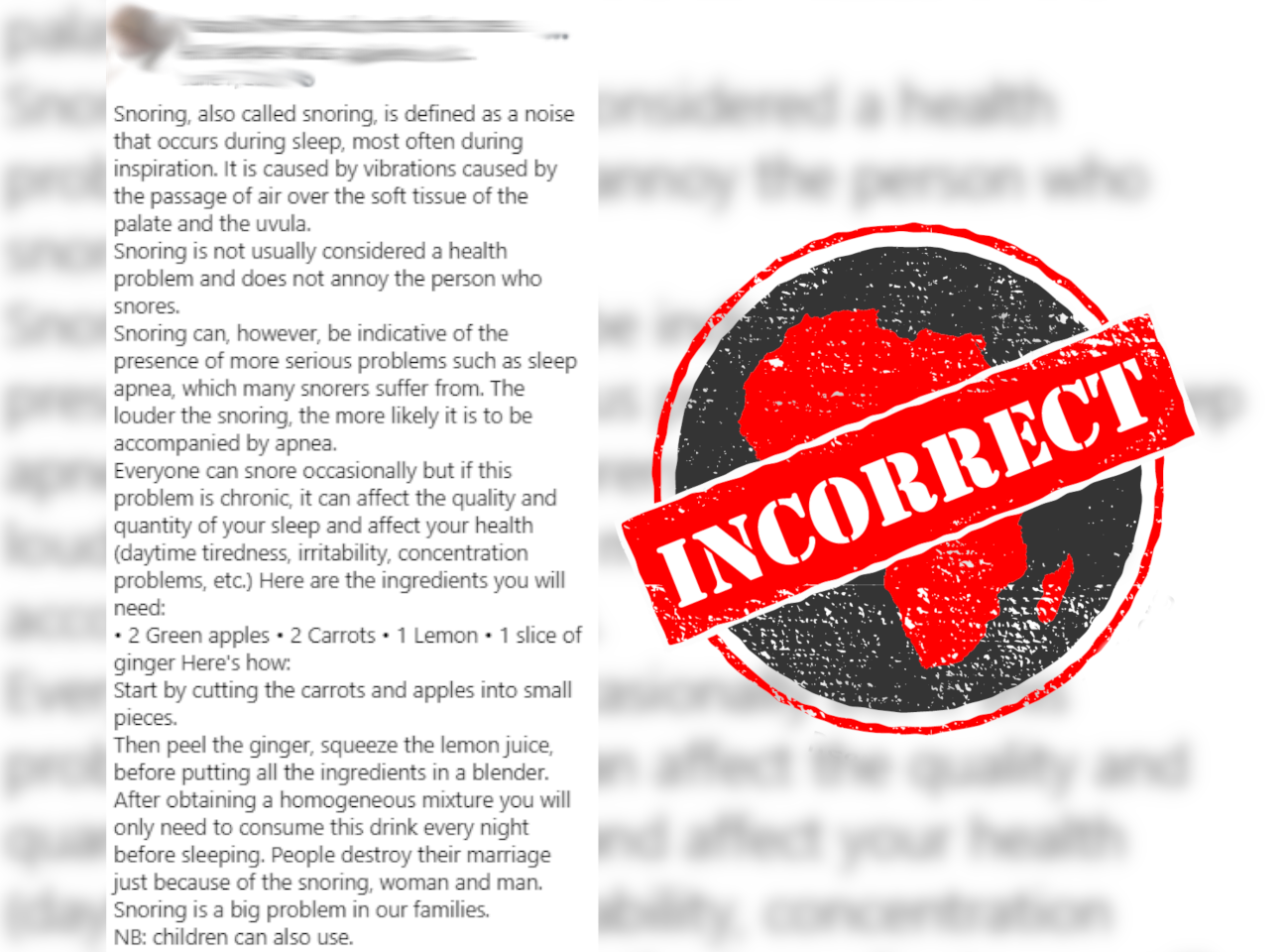“Snoring, also called snoring, is defined as a noise that occurs during sleep,” begins an incoherent message on Facebook that claims to have a remedy for, yes, snoring.
The remedy’s ingredients are two green apples, two carrots, a lemon and a slice of ginger, all cut up and blended.
“After obtaining a homogeneous mixture you will only need to consume this drink every night before sleeping,” the message says.
“People destroy their marriage just because of the snoring, woman and man. Snoring is a big problem in our families. NB: children can also use.”
Is this claim correct?

Not scientifically proven
“The remedy has not been scientifically proven,” Samuel Adoga, a professor of ear, nose, throat, head and neck surgery at Nigeria’s University of Jos, told Africa Check.
“The causes of snoring in children and adults vary. Children who have enlarged adenoids or tonsils may snore. In adults, alcohol consumption, unhealthy weight and respiratory infections such as the common cold are some causes.”
He added: “There are various solutions to snoring. Children battling with enlarged adenoids or tonsils would need to undergo an operation. To treat snoring in adults, a doctor will first ask the individual to either lose weight, avoid alcohol, or change their sleeping position – particularly, avoid sleeping on their back.”
Adoga said people who snored should seek medical advice from a doctor, instead of relying on herbal mixtures.
Republish our content for free
For publishers: what to do if your post is rated false
A fact-checker has rated your Facebook or Instagram post as “false”, “altered”, “partly false” or “missing context”. This could have serious consequences. What do you do?
Click on our guide for the steps you should follow.
Publishers guideAfrica Check teams up with Facebook
Africa Check is a partner in Meta's third-party fact-checking programme to help stop the spread of false information on social media.
The content we rate as “false” will be downgraded on Facebook and Instagram. This means fewer people will see it.
You can also help identify false information on Facebook. This guide explains how.


Add new comment